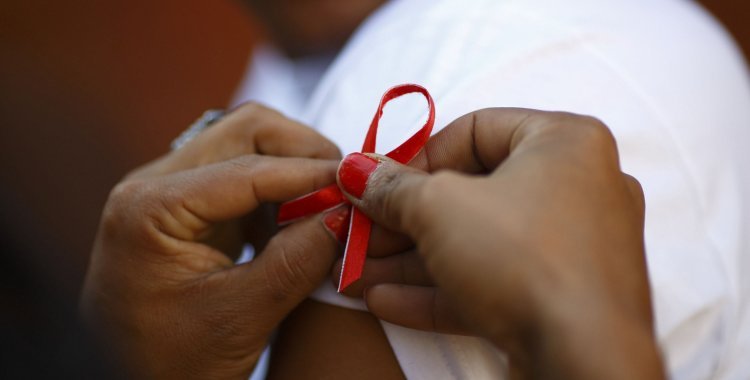The Survey on the Impact of Covid-19 on People Living with HIV/AIDS in Angola, which the Lusa agency had access to last Monday, was prepared by the Angolan non-governmental organization "Acção Humana", sponsored by the Open foundation Society, between March 2020 and April this year.
"It should be noted that "stigma and discrimination" continue to function as an invisible barrier to treatment, as they distance people from the nearest treatment centers with fear of being recognized and discriminated against, in some cases contributing to absences and dropouts, as well as , for non-presence schemes and which, in a certain way, can also affect the process of decentralization of treatment, according to the areas of residence or proximity centers", says the study.
According to the document, in the time of covid-19, the impediment of intra and inter-provincial circulation raised "the invisible barrier of stigma and discrimination".
The study found, based on dialogues with PLWHA, specialists and activists, "that there is a huge fear of people being treated in their areas of residence due to stigma and discrimination".
"Some resort to treatment and access to medicines in municipalities or provinces other than their area of residence. However, the survey revealed that 3 percent of the sample is treated outside their area of residence, with emphasis on the fact that many patients are moving from other provinces to Luanda for treatment, while Huíla has an inverse relationship, in which many patients travel to Namibe for treatment," says the survey.
This situation, the document stresses, affects the effectiveness and efficiency of the decentralization strategy undertaken by the authority, both in terms of access to consultations and to medicines.
With regard to socioeconomic aspects, the research concluded that the economic and social consequences of covid-19 had a great impact on the quality of life of PLWHA, with the majority of the population surveyed being unemployed (34 percent) and others working essentially in the informal market.
"We can note that many PLWHA survive on charity and family solidarity and 46.9 percent live off their salary. About 27 percent of sales in informal markets, 23.2 percent depend on family support and 3 percent survive The results obtained allow us to conclude that there is a strong economic and financial vulnerability of PLWHA and that there is a difference between the studied provinces", highlights the study.
The impact of food inflation, the meager resources obtained through sale in the markets and dependence on third parties contributed negatively to the sustainability of the treatment, since the treatment with ARVs [antiretrovirals] demands a balanced and healthy diet, to ensure a greater treatment effectiveness, research highlights.
Another characteristic revealed by the study is that 34.5 percent of the people surveyed (8.8 percent men and 27.7 percent women) have lived with the disease for more than ten years, that women deal better with the disease and present a higher prevalence rate.
The study found that 5 percent of PLWHA tested positive for covid-19, the most affected group being people over 40, with about 70 percent of cases leading the list of infected in Luanda province.
In terms of access to health services and care given the restrictions of covid-19, it was concluded that the uncertainties induced by the pandemic, the insufficiency of information on the HIV/covid-19 relationship ended up directly affecting the hospital-patient relationship, indirectly. the management of medication stock and consequently the relationship between the patient and the treatment.
"However, the relationship between hospital and patient had three moments, a first moment marked by uncertainty, in a second, by a timid reunion, and, in a third, a moment of normalization", emphasizes the research.
Covid-19's uncertainties were installed in the first 45 days, a period in which the State of Emergency was in force, with the suspicion in the hospital-patient relationship and the impact on access to consultations and antiretrovirals.
"In other words, it had repercussions on the treatment. If, on the one hand, there was a concern to protect the hospital staff and from which several protocols were created that restricted contact with patients, on the other hand, the patients they feared moving due to their condition and/or lack of information about the HIV/COVID-19 relationship", highlights the study.
Many patients, in an attempt to recover their routine, requested medical-medical care, however, the availability of services returned to the pace of relief from restrictions, with "greater demand for services than the supply".
"The great demand received contributions from patients who attended abroad (travel restrictions), private clinics (pandemic/unemployment/loss of ability to stay in clinics/loss of health insurance)", the document says.
"If, with the routine of medical-drug care, we have high numbers of missed appointments, poor adherence and all the underlying consequences, in a time of pandemic, with restrictions on access to services, allied to the low supply of medicines, these events had their increase. Almost non-existent medical assistance and care, low access to medication, reports of decompensation with hospitalization and deaths", highlights the research.
Overall, the study concluded that "in the context of covid-19, PLWHA had enormous difficulties in carrying out their treatment routine and, consequently, in accessing economic and financial resources for the sustainability of treatment".







